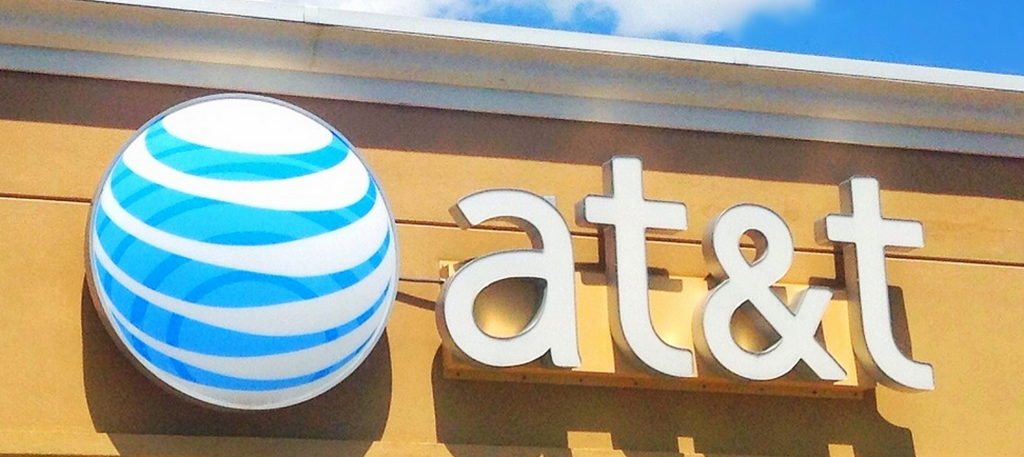AT&T To Free Up More Data For Mobile Subscribers, At Cost Of Net Neutrality
Most of us are used to mobile companies clinging tightly to every precious bit and byte of data like a dragon hoards gold. Unlimited data plans were everywhere for a while, then went away, and then kinda sorta came back but not really. This week, AT&T has announced two big changes that will work to free up “bonus” data for their subscribers. One is harmless and maybe even good, but the other could have big, negative repercussions for mobile internet use.
First, the good news: AT&T is making rollover data a thing. Subscribers to AT&T’s Mobile Share Value plan will automatically have any of their unused data start to carry over into the next billing cycle, the company announced today.
AT&T says that 50 million of their customers subscribe to Mobile Share Value, and will see the rollover data kick in to their plans on January 25. AT&T has about 118 million customers, so that’s 40% of their users who will get the “free” rollover data boost on their plans.
If it sounds a bit like the “data stash” that T-Mobile announced a few weeks ago, that’s because it is. The plans do have some key differences, though. AT&T allows all Mobile Share customers (including those on the 1GB plan) to roll over data, where T-Mobile’s stash becomes available at the 3 GB-and-up tier.
On the other hand, T-Mobile’s rollover data takes a full year to expire, but AT&T’s is a one month use-it-or-lose-it deal. If you have a 3 GB data plan and only use 1 GB of data in March, then in April you can use an extra 2 GB of data on top of your regular 3 GB. But if you don’t use that 2 GB in April, you can’t carry it forward into May or beyond.
While it sounds good for the high-volume data users, though, most of us probably won’t ever tap into that spare stash. Data is neither that limited nor that heavily used, in the real world.
AT&T’s other new plan, though, is more worrying. GigaOm caught the announcement at the company’s developer conference at CES.
AT&T is launching a Sponsored Data plan that allows app developers to buy (sponsor) a certain amount of data to be reserved for their app. When consumers use that app, they don’t get dinged for the data. The developer does.
So, for example, if Facebook were to become a data sponsor, they would pre-purchase an absolute mass of data from AT&T. Then Facebook users on the AT&T network wouldn’t see their data allowance take a hit when getting material from Facebook. That data would, instead, be charged on the other end, against Facebook’s allotment. Kind of like the digital version of business reply mail or prepaid return shipping labels.
In their developer conference, AT&T provided several best-case scenarios for using such a thing. For example, GigaOm relates, a business that has their business contract with AT&T could buy the exemption for their website, their e-mail client, or some other proprietary, work-use function. That would spare employees’ data when they’re doing many business-related tasks.
But the flip side is that this is the exact kind of scenario that net neutrality advocates have worried about, playing out in the wireless space. Companies that can afford to buy exemptions to data will become the favorites of consumers who don’t want to pay hundreds of dollars per month for expensive data plan boosts.
Like T-Mobile exempting certain popular music streaming apps from their subscribers’ data caps, this move will have the side-effect of making big, well-positioned companies even bigger while making it harder for new entrants to join the field.
GigaOm reports that AT&T stressed in their presentation that they would not prioritize traffic from organizations that bought sponsored data. But even so, a de facto hierarchy still forms: if you can use one of two apps to accomplish the same thing, with all else roughly being equal, why wouldn’t you use the one that doesn’t use up your data?
AT&T reportedly cited small app developers as an example of a target for sponsored data, but clearly big services like Pandora and YouTube are on their radar. And, as GigaOm points out, that means AT&T gets to win twice over: their own subscribers pay for their monthly data allotments, and so do app developers.
Sure, customers will get to keep their now freed-up and unused data for an extra 30 days, until it expires. But in the long run, as the cost of accessing data gets transferred to the organizations whose data you access, fewer and fewer outlets will be able to afford that cost. That means fewer small companies, less competition, and an overall loss for consumers.
Want more consumer news? Visit our parent organization, Consumer Reports, for the latest on scams, recalls, and other consumer issues.


